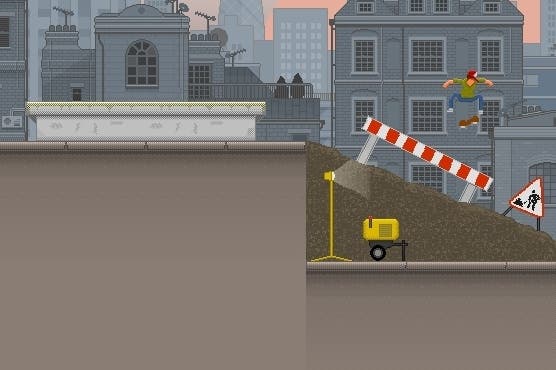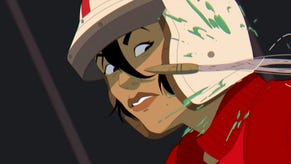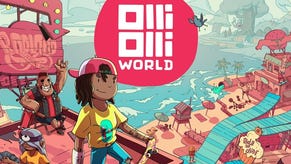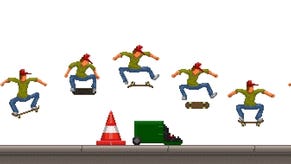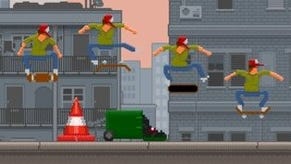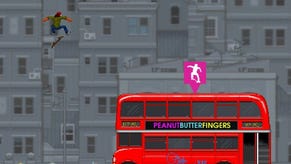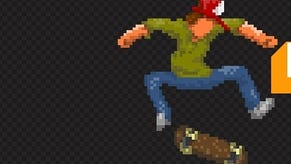How one New Cross developer found itself working on Sony's indie-loving handheld
"The Vita's like the hipster of the game world."
New Cross can be a funny place. A handful of miles shy of East London, the capital's hub of wonky hats and haircuts, it's always threatened to be cool, but for every flat white served here there's another reminder that it's never quite made it, for better and for worse. It's modish Shoreditch delivered on an often reassuringly small scale.
Which makes it a fitting home for a young, sparky developer working on a new game for Sony's funny little handheld. "The Vita's like the hipster of the games world," roll7's creative director John Ribbins tells me over a mug of tea served in a corner of a scruffy South East London studio. "There's not many of them, people think they're a bit weird, but they've got cool stuff. It just doesn't have a beard, and doesn't ride a Penny Farthing."
Ribbins doesn't have a beard and he doesn't ride a Penny Farthing, but he does have a passion for skating that's informed roll7's first dedicated console venture, OlliOlli. It's a simple, stylish and subtly deceptive game. At first, its 2D visuals may put you in mind of the endless numbers of endless runners you've played before, but get playing and it's soon apparent this is something else entirely.
You're in charge of a tiny pixel chap dwarfed by urban environments - at least, you will be come the final release, with a sparse test-bed all that's available to play right now. Still, the lack of detail in the backgrounds doesn't really obscure the detail that's in the control.
OlliOlli's a tricky, demanding beast, especially in your initial encounter. You're propelled into the air by flicking the left stick, where you're then free to perform a set of tricks. Unlike the Tony Hawks series, however, there won't be absurd combos. It's a more grounded skating game, one that swaps out some the overstated spectacle of its peers for a hard-edged brand of challenge.
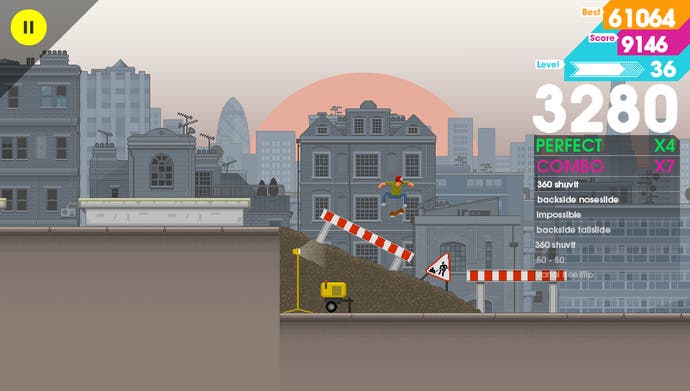
Landing requires you to press the X button at just the right moment, and grinding's a matter of timing too. It's a little twist that makes OlliOlli tough to acclimatize to, the first few minutes a clatter of fumbled boards and bruised knees, but it soon comes into its own. The challenge becomes the game, though, and the score-attack woven into OlliOlli is sure to promote a satisfying sense of mastery.
OlliOlli's more than just another cute indie, as too are roll7. They're both part of a growing indie movement, and one that's swaying towards Sony as the electronics giant prepares the PlayStation 4. "There's this small army of they're building, and it's a really nice set-up for their new platform," says Ribbins. "You can render your lovely world with 80 billion polygons and if you want to try something that looks like it came off a MegaDrive and you're not going to get past the second level because it's insanely hard - well, you can do that too."
Like so many stories surrounding Sony's indie drive, there's a soft philanthropy to roll7's journey to a PlayStation platform. The studio started out as a digital agency, working on videos, websites and socially responsible games, before it set about achieving its ultimate goal. Get to the Exit was its first game, a slender, mean iOS game that was well received upon its release in June last year. "It got really nice feedback," reflects Ribbins. "The pinnacle of that was being in Edge magazine, where the review was next to one for Rovio's Amazing Alex. They got a 7, and we got an 8. I know it's not a competition, but... Well, it was a competition."
Get to the Exit was a moderate success, critically at least, and it sparked off something else within the studio. "There was a desire from our point of view, whether it was XBLA, or whether it was Sony or whether it was PC, to move to a platform where we don't have to scale our vision to appeal to a mass market," says Ribbins. "We're all people that like hard games. I don't want to play something where I'm just grinding for IAPs. I don't want to play something that's ridiculously easy. Actually making something that's challenging, and you get a sense of achievement when you beat the game, is where we wanted to go."
A chance encounter at last year's Develop conference in Brighton helped set roll7 on the right path. When Ribbins spotted someone in the skater's uniform of DC shoes and baggy shorts he figured he'd found the perfect person to pitch OlliOlli too. He had: that person turned out to be FuturLab's James Marsden, the chap behind PlayStation marvel Velocity, and he helped set up a meeting with Shahid Ahmad at SCEE, one of the driving forces behind Sony's indie drive.
"We were a little bit nervous at that point," remembers roll7's director Tom Hegarty. "It's quite a jump going from iOS to Sony. We went for our first meeting a few weeks after, in Soho, and we had four games to pitch. The first was Get to The Exit, there was an audio game and a third I can't even remember. It was quite a depressing meeting - you could see their faces as you showed each game that nothing was clicking. And it got to the point where I was nudging John under the table to show them the skating game."
Ribbins got the iPad out and passed on the short demo of OlliOlli to Ahmad, at which point a silence descended upon the room. It was the good kind of silence, though. "Eventually John had to ask for his iPad back," says Hegarty. "From there they were just hooked on the game."
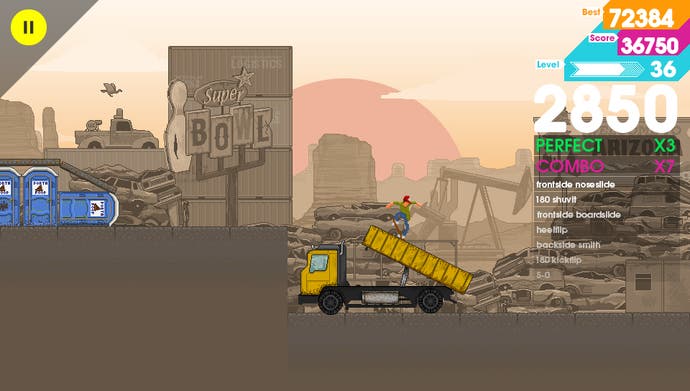
OlliOlli's being bought to the Vita as part of the same project that's brought us Joe Danger and Explodemon in the past, and that's bringing us Luftrausers and Hotline Miami in the future. It's a deal that according to Hegarty, works for both parties. "Sony fund us, and we keep the IP. It's very fair, and if we port it to other platforms it's even fairer.
"It's almost like an investment without any equity or strings attached. They get a bit of content for the platform, and we get that cash injection that we need. For Sony, I think it's definitely going to work - we feel loyal to the brand and to the platform, and we've spoken to a lot of people who feel the same way."
It's a sweet story, then, but pretending that all is rosy in Sony's garden wouldn't be wholly truthful. The Vita's drifted from the mainstream consciousness, suggesting there's been a dulling of the appetite for dedicated games machines that could well hamper the PlayStation 4's release later this year. Having experience of the iOS alternative, Hegarty's optimistic that won't be the case.
"We actually think that we've got a better chance of making a return if we put it on the Vita," he insists. "It's a dedicated platform, there are 4 million of them out there so you've got 4 million dedicated gamers. It brings different challenges, but our marketing objectives are much clearer. It's a smaller market, but there are more channeled ways of getting to them. And we think it's a better game - hopefully that will help."
